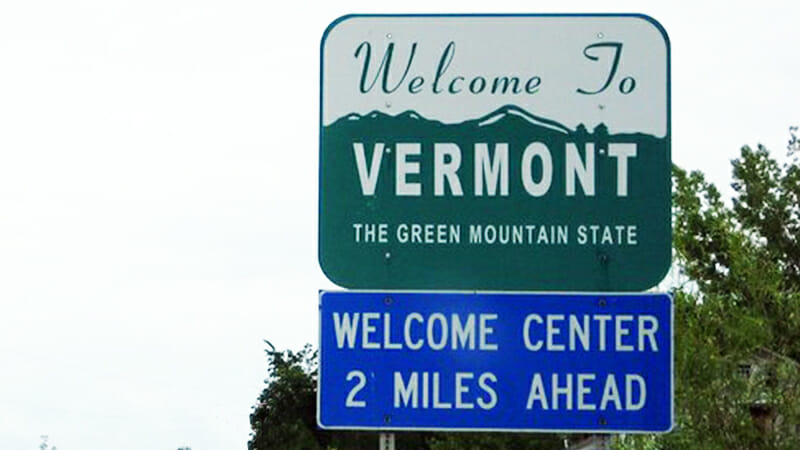Vermont Sports Betting Market Sees Five License Bids

The upcoming legal Vermont sports betting market is taking shape, with five operators now having submitted license applications to the state regulator.
The Vermont Department of Liquor and Lottery’s (VDLL) recent Request for Proposal from prospective licensees has seen bids from DraftKings, FanDuel, BetMGM, Fanatics, and ESPN Bet.
Vermont lawmakers passed House Bill 127 back in May, marking the state’s first significant gaming expansion since the Vermont Lottery was authorized in 1977.
This legislation paves the way for up to six online sportsbooks to obtain wagering licenses. However, it mandates that a minimum of two licenses be awarded for online sports betting to commence in the Green Mountain State.
This VDLL will now undertake the task of reviewing the five sports betting submissions. This includes conducting suitability probes for each company, examining its key executives and shareholders, and evaluating the regulatory conditions each mobile sportsbook platform proposed in its RFP.
Bidding Details and Projections
Vermont’s sports betting regulations have set specific criteria for potential operators. Sports betting revenue will face a minimum tax rate of 20%. Licenses come with a price tag of at least $550,000 and are valid for a minimum of three years. The minimum age for sports betting in Vermont will be 21.
The VDLL has also told operators it can offer enhanced bids to secure a license. Officials from Vermont’s lottery and liquor departments will grade each bid on a scale of 0-1,000 points.
Factors influencing these points include the percentage rate of gross income a sportsbook is willing to share with the state, and their projected gross and adjusted sports wagering revenues.
Operators can offer between 20% and 51% of revenues as tax rates, with 51% counting as 100 points on that front. If any operators choose the 51% route, they will be joining operators in just four other states with such high sports betting tax rates – Arkansas, New Hampshire, Rhode Island, and New York.
Interestingly, all of those states are relatively small, population-wise, with one exception. New York is the largest sports betting market in the U.S., but also has one of the highest tax rates.
Back in Vermont, a significant amount of applicants’ points will be based on its operational history in other legal sports betting states. Other factors include their commitments to responsible gaming, technical capabilities, and regulatory safeguards.
The Vermont Lottery and Liquor Department anticipates awarding its first online sports wagering licenses this fall. The launch of these platforms is expected in early January 2024.
Suitability Concerns and Market Potential
While four of the five applicants have already undergone extensive background checks in various states, ESPN Bet’s bid might face additional scrutiny.
This is because of its part-owner, Penn Entertainment, which recently terminated its ties with Barstool Sports in order to rebrand its Barstool Sportsbook into the upcoming ESPN Bet.
The termination followed regulatory challenges relating to Barstool’s controversial once-again owner, Dave Portnoy.
Despite the enthusiasm from politicians and operators in Vermont, there are concerns about the state’s ability to support multiple online sportsbooks.
Vermont ranks 49th out of the 50 states in terms of population, with a modest count of just 650,000 residents. It also has no major national sports teams or stadiums, with its largest team being college baseball’s Vermont Lake Monsters. Winter sports like skiing and snowboarding are popular in the state, but these aren’t traditionally the biggest betting markets.
These demographic and cultural factors will influence which national U.S. sportsbooks are willing to apply for licenses in the Green Mountain State.
The market is expected to bring in somewhere between $2 million and $10 million a year in revenues, and about $1 million to $5 million in taxes. That’s small fry compared to top markets like New York, which has regularly seen $100 million in monthly revenues over the past year.











